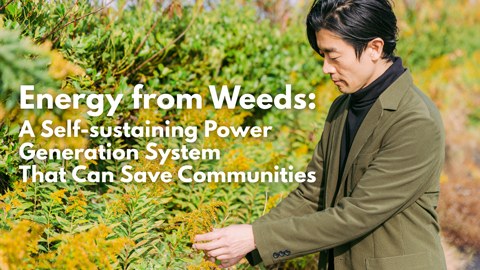Serious problems have emerged from brick production in Asian countries such as China, Nepal and India: CO2 emissions during the firing process harm the global environment, while massive amounts of soot and smoke damage people’s health. A Japanese flooring construction company has developed a technology that could potentially solve these issues. The keyword is “non-fired bricks,” with plans for their production in Bangladesh. What is the story behind this promising innovation?
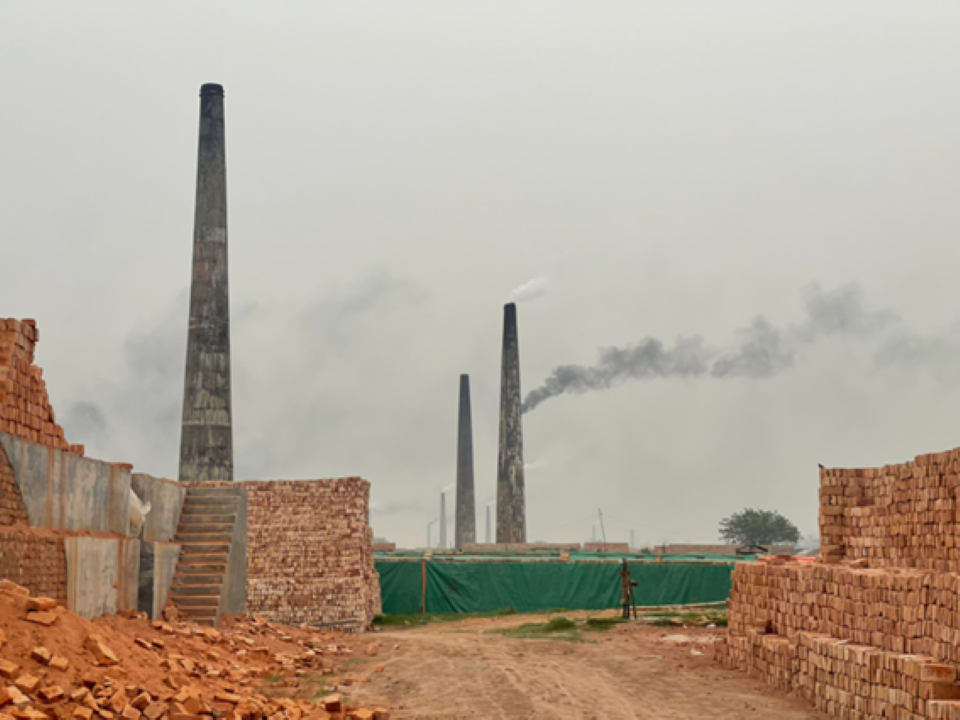
Black smoke rises from chimneys at a fired brick factory in Bangladesh.
In Bangladesh, bricks are used to build many structures, among them homes, public facilities, walls, and roads. Bangladesh’s brick industry is a major sector of the economy, accounting for 1 percent of the nation’s GDP. Due to a construction boom in recent years, 23 billion bricks are manufactured annually, with production expected to increase by 2 to 3 percent each year.
As brick demand continues to grow, air pollutants such as soot emitted during the brick firing process have become a major problem. According to a 2022 survey, approximately 8,000 brick factories operate in Bangladesh. Although brick manufacture requires approval from environmental authorities, only about 3,200 fired brick kilns operate legally. Unlicensed factories use outdated brick kilns, releasing massive amounts of air pollutants. Many factory workers and nearby residents suffer from bronchitis and other health problems.
Along with human health, the pollution has a serious impact on agriculture. In Bangladesh, fertile topsoil from farmland is considered an ideal raw material for high-quality bricks. The extraction of agricultural soil for brick production causes the loss of extensive farmland each year. The growth of the brick industry has consequently become a contributing factor to food shortages.
One technology that could solve this problem is the non-fired brick independently developed by EIKEN Co., Ltd. Long engaged in floor construction for factories and logistics facilities, the company already possessed soil solidification technology originally developed to reduce soil muddiness.
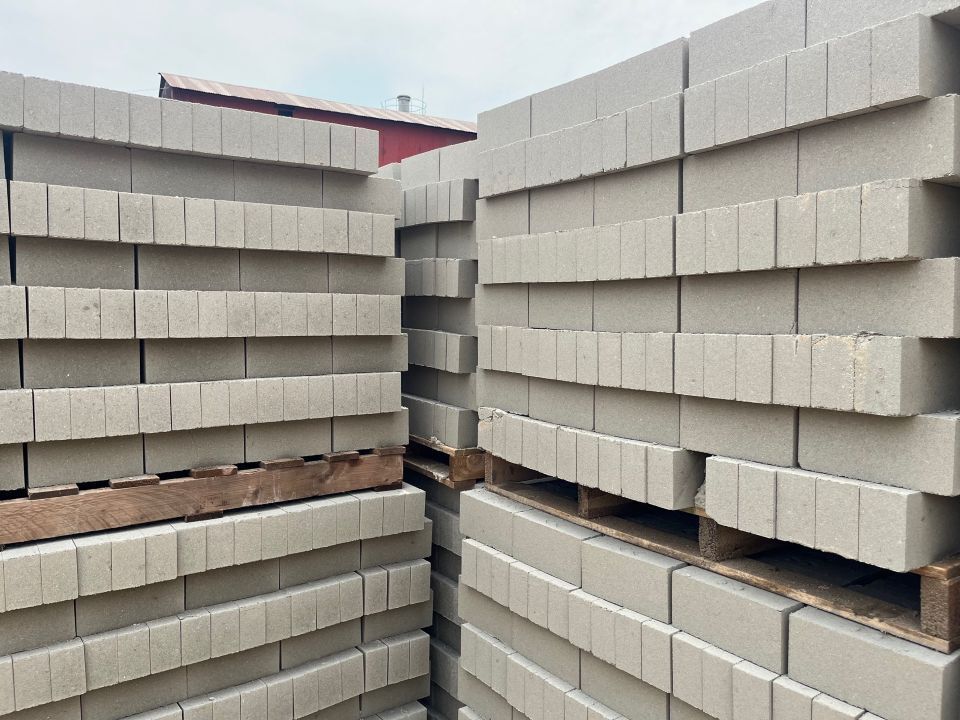
Non-fired bricks developed by EIKEN Co., Ltd. Since they are not fired, they appear gray, like concrete blocks. They can be colored to any desired shade.
HACHIYA Hideaki, president of the company, explains: “It all started in 2015 with a request from a Nepalese client. Our company has proprietary materials that react with cement components to create denser, finer mortar and concrete, but using cement as the main ingredient makes costs very high. So we were asked if we could apply that technology to solidify Nepalese soil at a low cost. That’s what brought us to Nepal.”
Hachiya conducted repeated tests with local soil and sand. In 2017, he built a factory in Nepal together with a local company. The result was the creation of the inorganic admixture “ECO5000,” which is mixed with local soil, sand, and small amounts of cement. Compressing the mixture under high pressure, then drying it, yields non-fired bricks with a strength comparable to that of fired bricks. The technology generates no air pollution since no firing is required. Additionally, ECO5000 has properties that densify cement components, so applying it to the surface of existing blocks can enhance their water resistance.
Around the same time, EIKEN began exploring business opportunities in Bangladesh, where air pollution from the brick industry was similarly problematic. They searched for the most suitable local raw materials for manufacturing non-fired bricks and developed production recipes accordingly.
“We heard that the Bangladesh Inland Water Transport Corporation was struggling with the disposal of dredged soil containing seawater, so we developed a recipe that adds ECO5000 to sea sand, dredged soil, seawater, and small amounts of cement. In 2022, we also invited local brick manufacturing specialists to Japan for technical guidance,” Hachiya says.
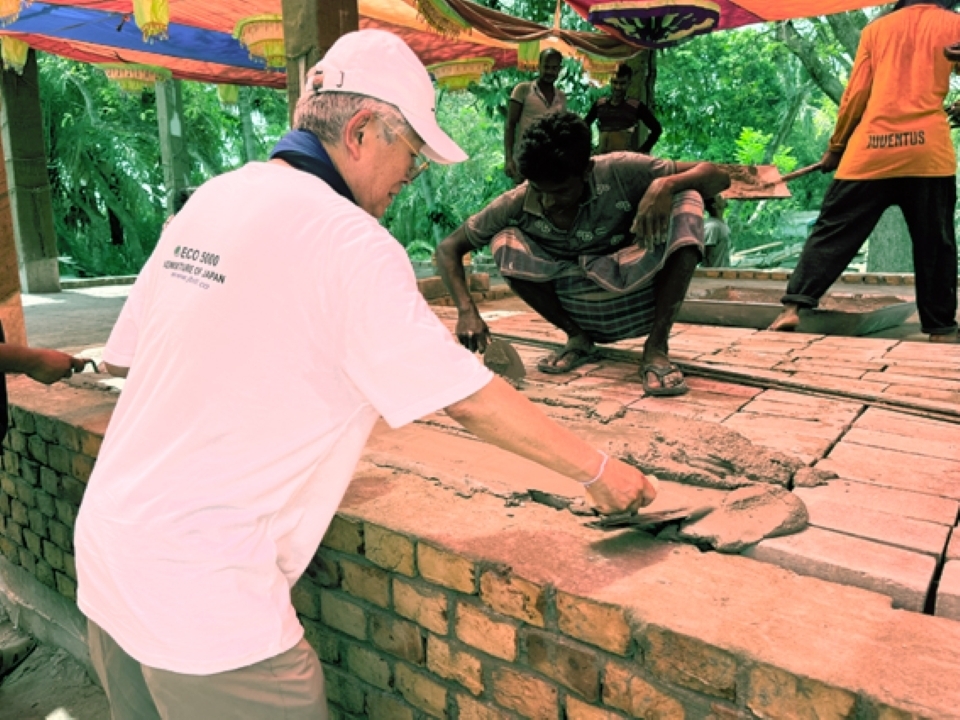
HACHIYA Hideaki personally provides technical guidance in Shatkira, Bangladesh.
The Nepal factory was forced to temporarily halt operations due to the COVID-19 pandemic, but in Bangladesh, EIKEN has finalized a partnership with a major company as well as a factory location, with full-scale local production set to begin in 2025. Initially, non-fired bricks will be manufactured alongside fired bricks under EIKEN’s technical guidance, allowing continued employment for those currently engaged in fired brick production. In the future, as non-fired bricks become widespread, they could generate new employment opportunities without using soil needed for agriculture. Local government agencies and companies have shown strong interest in this environmentally conscious building material. Hachiya is determined to promote the manufacture and use of non-fired bricks throughout Bangladesh, initially aiming for a 10 percent market share.
“I relate to the concept of ‘social business’ advocated by Muhammad Yunus, the Bangladeshi social entrepreneur and Nobel Peace Prize laureate,” Hachiya says. “This refers to economic activities that consider the interests of all stakeholders or society as a whole, rather than pursuing only self-interest. In the future, I would like to support Yunus’s philosophy by expanding non-fired brickmaking to other countries that use bricks as building materials, as in the Middle East, Africa and Southeast Asia.”
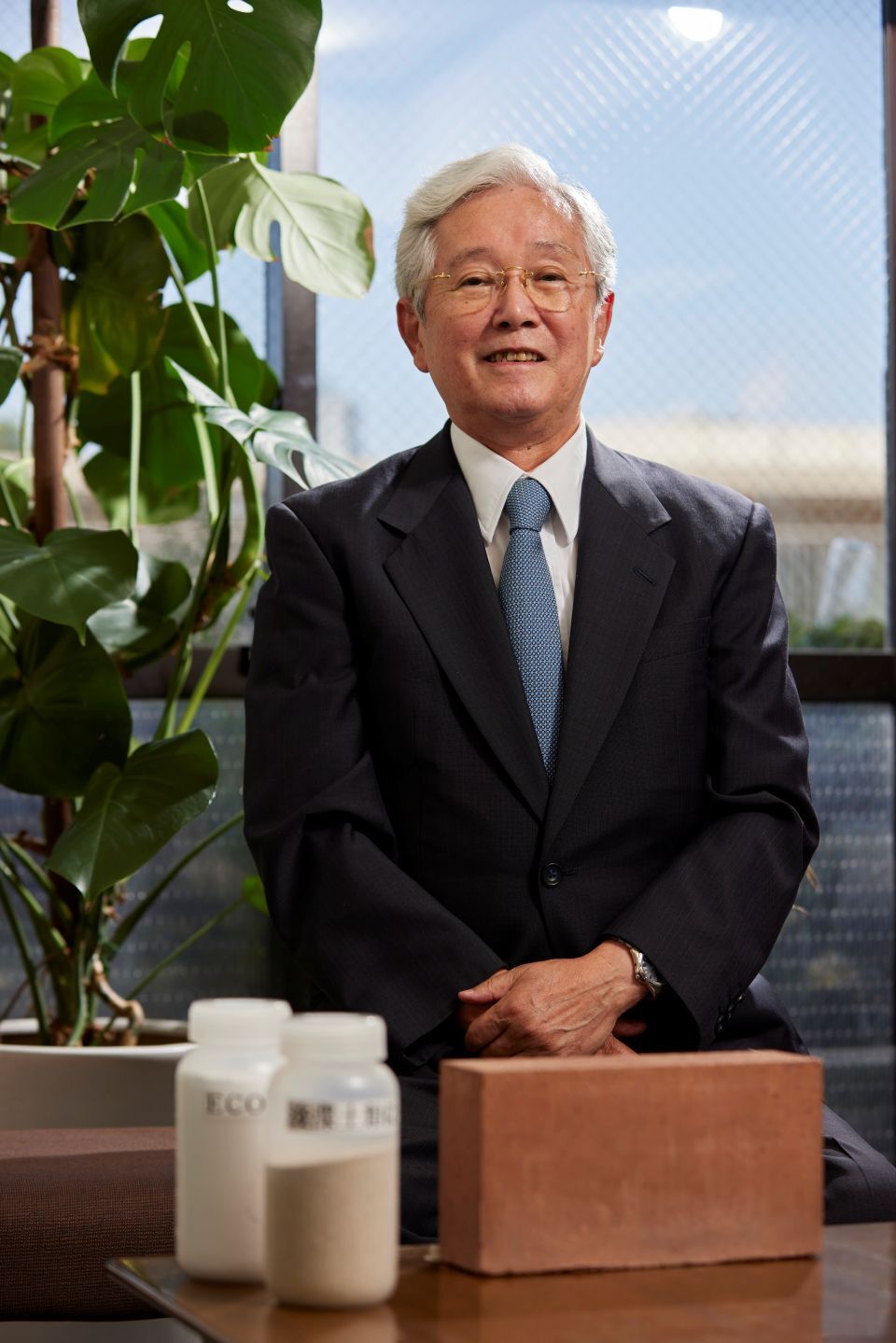
HACHIYA Hideaki, president of EIKEN Co., Ltd.




























